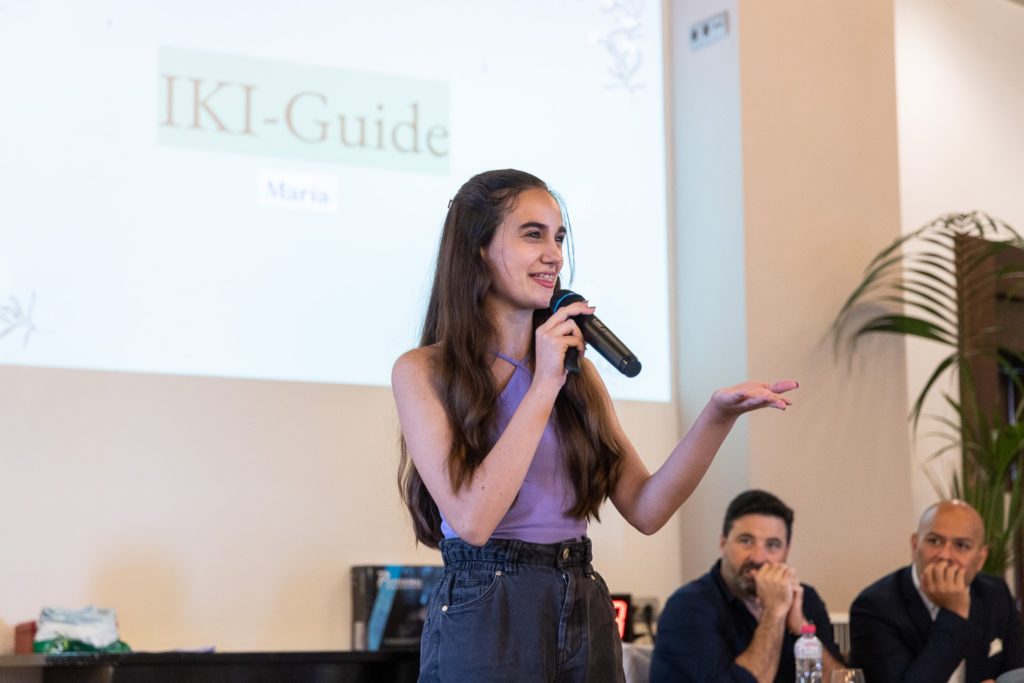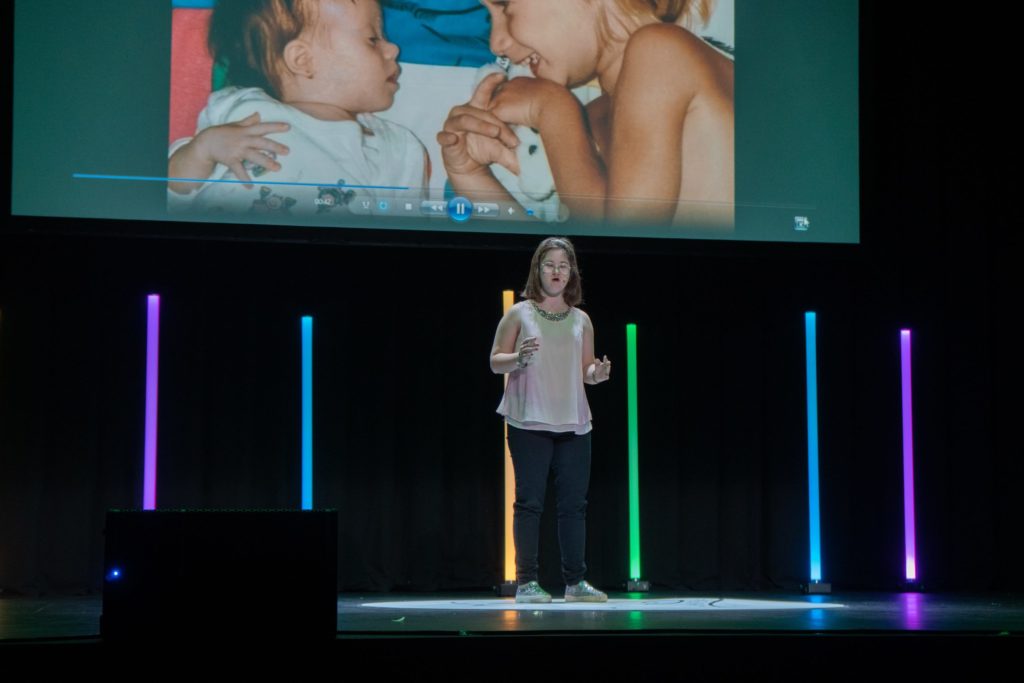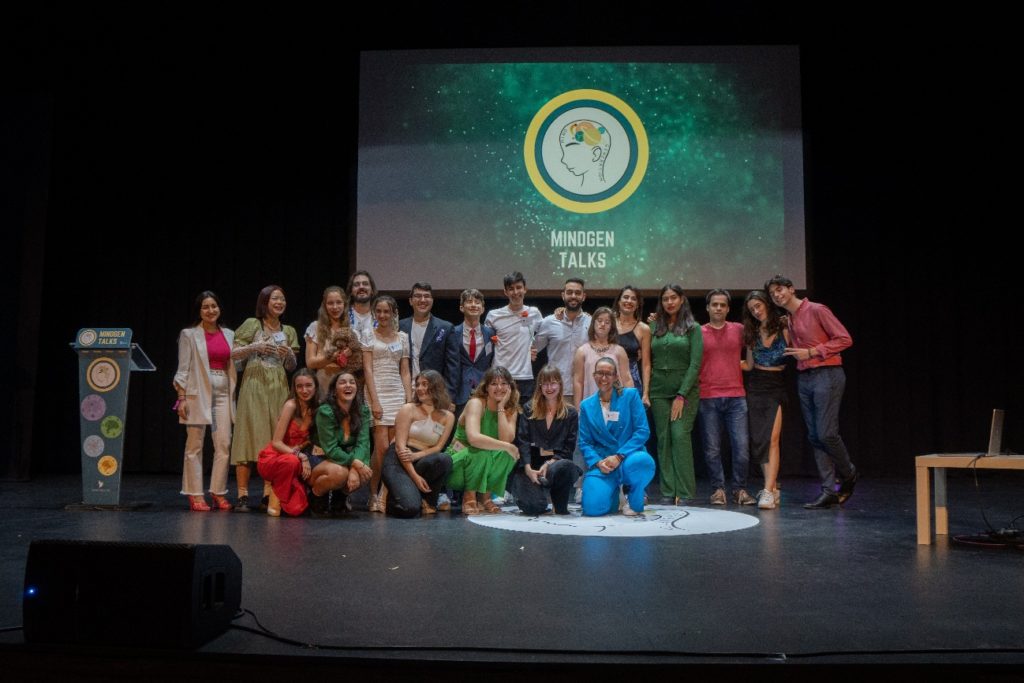
It began with silence
One of the first young people to join MindGen, a 15-year-old from Fuengirola, confessed that he often felt “invisible.” His school textbooks were confusing, official documents impossible to follow, and when he tried to explain himself in class, words seemed to betray him. “I stopped speaking,” he said, “because I thought no one understood me anyway.” Months later, that same young person stood on a stage in front of hundreds of people and delivered a talk that drew tears and standing applause. His secret? He had discovered that communication didn’t need to be complicated to be powerful. What he, and many others learned through MindGen was the essence of clear language.
The weight of complexity
We live in a world where information is abundant but not always accessible. Across Europe, nearly 1 in 5 young people struggles with literacy to the point where basic documents like school forms, health instructions, even bus schedules, are barriers rather than tools. For migrants and non-native speakers, the challenge is even sharper. Research shows that when documents are written in plain, direct language, understanding increases by 50% and the time needed to make sense of them drops significantly. In other words, clarity does not weaken a message, it strengthens it. Yet, too often, official communication is tangled in jargon. A 2024 review of European public documents found that less than 3% met plain-language readability standards. If young people cannot understand the words that shape their rights, their education, or their opportunities, how can they fully participate?
MindGen: clear language in action
This is where MindGen steps in, not with handbooks or instructions, but with practice, presence, and voice. For over 250 hours per edition, adolescents in MindGen train in emotional intelligence, mindfulness, and storytelling all trough plain language strategies. They are not asked to “perform” but to find the simplest, clearest way to share what matters to them. The process transforms how they speak and how they see themselves. One participant who had endured bullying learned to tell his story without bitterness, using simple, vivid words that connected across generations. Another, once too anxious to raise her hand in class, discovered that audiences don’t want polished jargon, they want authenticity. Clarity here is not just technical; it is relational. The talks are not lectures filled with difficult vocabulary. They are bridges: messages crafted so the listener feels seen, understood, and invited in.
MindGen’s approach mirrors what researchers on communication have long shown: that messages delivered with authenticity and clear structure are remembered up to 60% more than those wrapped in complex phrasing. But MindGen adds something often missing in policy debates about plain language: presence. Adolescents practice Social Presencing Theater, learning to embody their words, to pause, to breathe, to notice how their message feels in the room. When they speak with this awareness, they instinctively simplify, choosing words that resonate rather than alienate. As a facilitator explained, “The body doesn’t lie. When you are fully present, you naturally seek clarity not to impress, but to connect”
From the passive silence to the active voice
The impact is visible. After four editions, over 100 adolescents have completed the program. Internal evaluations show that 80% feel more confident speaking in public, 70% report less stress when communicating, and 100% would recommend the experience to peers. But numbers only tell part of the story. The true change is in the eyes of a teenager who once felt invisible and now says: “My voice can change things.”

Why clarity is a collective task
MindGen is not an isolated success; it is part of a growing European movement. Projects like That’s Clear! train youth workers to create accessible resources, while international standards published in 2023 by the ISO give global legitimacy to plain language. The message is spreading: just as ramps make buildings accessible, clear language makes society accessible. For PLIS, the lesson is simple: when communication is a barrier, inclusion is impossible. When it becomes a bridge, communities flourish.
The story ahead
The MindGen journey shows that clarity is not about simplifying people, it is more about simplifying systems. It is about recognizing that the power of language lies not in how complicated it sounds, but in how deeply it connects. And sometimes, the greatest revolutions begin with a teenager stepping onto a stage, taking a breath, and daring to speak in words everyone can understand.

